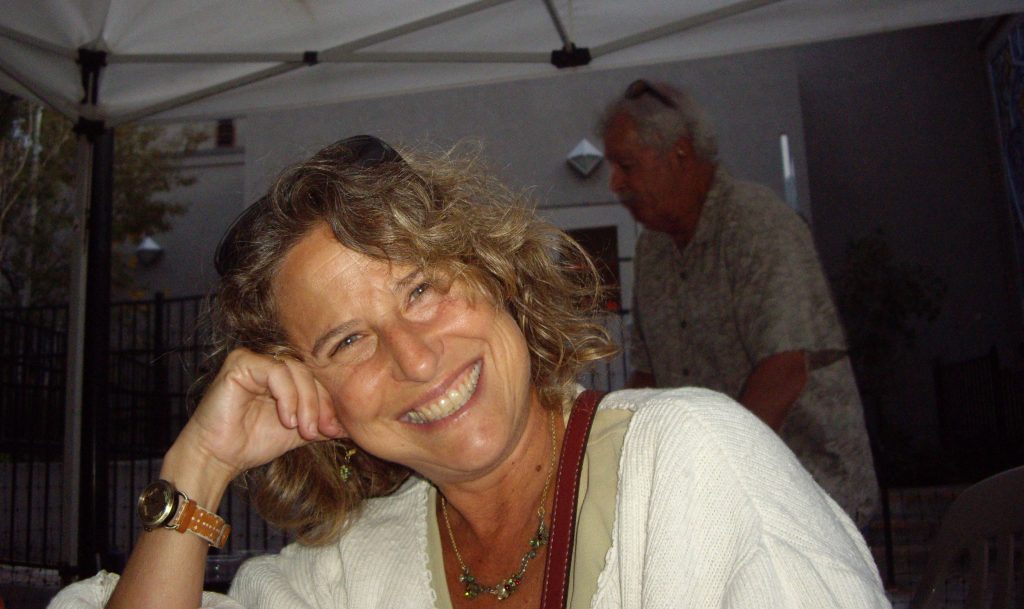“Israel wants to be independent, yet it also has expectations from the Jewish diaspora, particularly for funding. I believe that this is shifting and that there is a growing awareness that the relationship can be mutually beneficial.”
The Interviewee – Shari L. Edelstein, Manager of Institutional Development at HIAS . I was born in New Jersey and grew up in south Florida. After college (Cornell), law school (University of Wisconsin-Madison) and a short stint at a law firm in Washington, DC (Arnold & Porter), I made aliyah.
Over the years in Israel, I lived in many places (including Tel Aviv, Jerusalem and Kibbutz Hazterim), but my home is Moshav Zippori where my older son was born. In Israel, I worked in the social justice foundation and nonprofit world. My passion for promoting social change is informed by my strong sense of Jewish identity and has inspired me in my personal and professional capacities.
In your opinion, what importance, if any, does the existence of a Jewish state have to you personally and to Jewish people in general?
“The existence of a Jewish state is very important to me and, I believe, important to the Jewish people. I have finally come to terms with the fact that Zionism is not an ugly word. As the Jewish people, we have national aspirations and as long as there are nation-states, we also deserve to have a homeland. What I don’t support are anti-democratic and degrading policies, particularly in terms of the Palestinian people/nation. They deserve the same rights we do. Many were displaced with the establishment of Israel, as were Jews (both in Europe and Arab countries). We can’t undo the horrible things that have been done, but we can work to stop the existing inequities and look for a solution that honors both sides.”
Do you feel committed in some way to defend the future existence of Israel?
“Yes.”
Do you affiliate yourself with a specific denomination in Judaism? What is your view regarding the dominance of the Orthodox denomination in Israel religious establishment?
“I was raised in the reform movement, but now feel much more aligned with egalitarian conservative Judaism. I believe there should be a place in Israel for all streams of Judaism. The dominance of the Orthodox establishment is a by-product of political compromises made in the early years of the state and are completely unacceptable. I firmly believe that this monopoly should be dismantled.“
Do you feel morally responsible for Israel’s actions (such as its management of the Israeli-Palestinian conflict)?
“I have dual citizenship and when in Israel, I am able to vote. While I do not feel responsible, I do feel outrage by the actions of the current (Netanyahu) government in many areas, including but not limited to the Israeli-Palestinian conflict.”
In your opinion, what is the main thing Israelis fail to understand about the reality of being Jewish outside of Israel?
“It would be wonderful if Israelis could understand that choosing to be an active member of the Jewish community in the diaspora provides a sense of belonging and connection that can be hard to find in the world outside of Israel. Interestingly, while living in Israel, I worked for many organizations that aimed to build understanding between diaspora Jewry and Israel. I found it fascinating to see that many Israelis connected to their Judaism after visiting Jewish communities outside of Israel. I believe, that this opportunity can help Israelis learn how to live a more ‘Jewish’ life that would enhance all of Israel.”
How would you describe Israel’s policy (formally and in practice) regarding its relationship with the Diaspora?
“The relationship is very problematic. Israel wants to be independent, yet it also has expectations from the Jewish diaspora, particularly for funding. I believe that this is shifting and that there is a growing awareness that the relationship can be mutually beneficial.”
In your opinion, does Israel have an obligation to defend and help Jewish communities in need?
“Judaism teaches us of the importance of helping all in need, not just Jewish communities. While I do not see it as a mandatory obligation, I am proud of the fact that Israel proactively helps communities in need all over the world.”
Have you ever been to Israel? if you have, can you summarize your impression from the Israeli reality?
“I am an Israeli citizen and spent 15 years of my adult life studying, working and living in Israel. It is also where my first child was born and I was married. With all of its flaws, Israel is where my heart is most at home. Israeli reality is one of sharp contradictions, where it is common to have a love/hate relationship. It is vibrant, alive and in your face.”
Can you tell us a bit about the Jewish community in your hometown?
“I live in Boulder, Colorado. We have a growing and active Jewish community, though there are many who are unaffiliated. Boulder has 6 religious congregations (a very small Orthodox minyan, Conservative, Reform, two Renewal and a secular humanistic community). There are also four Chabad houses in the wider area. In 2016, we opened a brand new, state of the art Jewish Community Center that has come out of a community-wide effort over the course of 20 years. The Boulder community is progressive, creative and always looking for ways to engage more people and stay on the cutting edge.”

